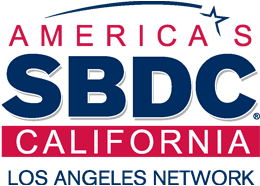Everybody needs a little help from time to time. Start-up businesses are no exception. That’s why business incubators and accelerators are so valuable in helping guide fledgling businesses through the early development stages to lay a strong foundation for their new ventures.
What’s the difference between an incubator and an accelerator?
The terms incubator and accelerator frequently are used interchangeably. Both prepare start-up businesses for future growth and success, but their functions and purposes are unique.
Business incubators typically provide affordable office space, services, support and advice for new businesses. They work with small business for a certain period of time, at which the small business exits the incubator. Most offer flexible exit timelines; while it may typically be one to two years, some incubators allow businesses to stay indefinitely. Business incubators may specialize in an industry, such as technology or food service.
Participation in an incubator program often is free or below market rates. Municipalities frequently sponsor incubator programs as a means of driving economic development because a majority of graduates from incubator programs remain in the communities where they began.
Business accelerators function more like a boot camp for start-ups. They typically are run by successful business owners who have formed an investment group that will provide initial seed money to participants in exchange for a small financial stake in the company.
Prospective start-ups undergo a rigorous screening process and only a small number are accepted to an accelerator program. The program usually has a specific exit timeline, typically three to six months, and can require owners to move to facilities provided by the accelerator program. Participants receive services, support and advice. They also make valuable business contacts and typically have the opportunity to present their business idea to potential investors at the conclusion of the program.
What is expected of program participants?
The concept for both incubators and accelerators is to provide entrepreneurs with the support they need to gain the momentum to succeed over the long term. Participating in an incubator or accelerator program can be a huge boon to your start-up, but you should enter into it with the understanding that this program is a two-way street. You have responsibilities to your sponsor.
Ask questions. Before you commit to an incubator or accelerator program, be sure you understand the features and benefits as well as the requirements of the program. What is the timeframe of the program? What types of support services are offered? What is the cost? What types of businesses are suited for the program? What is the background of advisors with whom you’ll work? Will you have the opportunity to present your business to investors? What is the success rate of program graduates? Thoughtful inquiries made before you proceed could save you from future headaches and confusion down the road.
Be open to advice. It may seem like a no-brainer that you would be eager to receive advice and assistance, but that’s not always the case. Entrepreneurs, by their nature, tend to be passionate about their ideas. As a result, they also have a tendency to stubbornly defend an idea rather than heed the guidance of more experienced business owners. While there are plenty of examples of people who were wildly successful despite the naysayers, don’t let your entrepreneurial zeal override reason. If you’re a program participant, listen to wise counsel and weigh its merits with an open mind.
Know what you want to accomplish. Whether you want to gain greater clarity about the feasibility or scalability of your business model, develop a working business plan or convince investors to give you start-up capital, have a clear idea about what you want to achieve. Do your homework and prepare in advance so you don’t waste valuable time and resources during the program doing tasks you could have completed ahead of time.
Be honest about your skills and knowledge gaps.
You may have significant knowledge in your industry, but less experience running a business. You may be a whiz with finances but a hopeless case when it comes to marketing strategy. That’s to be expected. Most of the world’s most notable entrepreneurs freely admit they have blind spots in their business acumen. You just need to know what those areas of professional development are for you and seek the information – or people – you need to fill in the gaps.
Kelly Burkart is a freelance writer from Minneapolis, Minn. While she has spent most of her time writing about financial services the past 15 years, she has also explored and written about everything from cardiovascular health to travel, higher education and sustainable energy practices.





